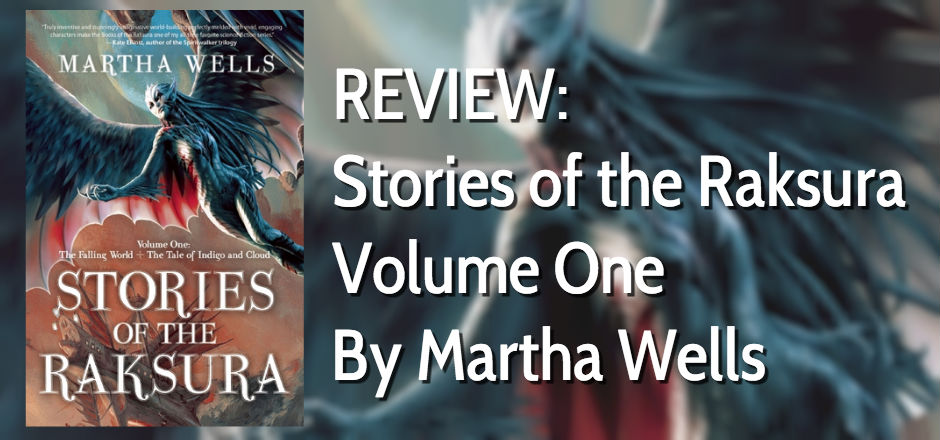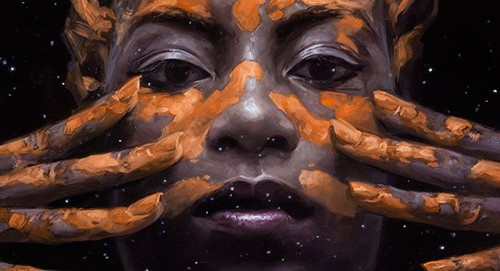Living in Manhattan, New York proves onerous for Emika Chen, who’s been struggling to pay rent. Aside from working part-time as a waitress, Emika also works as a bounty hunter, tracking down Warcross players who bet on the game illegally. But, like most jobs out there, the bounty hunting scene is competitive. Warcross — a virtual reality game created by Emika’s idol, Hideo Tanaka — is also a way of life for those who play to earn money. After Emika attempts to steal a power-up from one of the players during the Warcross Championships with her hacking skills, she somehow glitches into the game. She becomes a hot topic and catches the attention of
the last person she’d expect: Hideo. He offers Emika a job — to act as a spy during the games and figure out who’s behind the security breach. She leaves behind the harsh reality of Manhattan for one in Tokyo that guarantees financial security and glory.
Ever since Marie Lu announced Warcross a couple of days after I’d met her at a book signing, I’ve been highly anticipating its release: it spoke to me on many levels. Emika is an Asian-American, a gamer, awkward, and worries about financial stability. I found pieces of me in Emika that I couldn’t in other YA novels. I’ve been a fan of Lu’s books since Legend, and her concepts and how she executes them never fail to impress me.
That said, Warcross is her best book yet. It’s been dubbed as Hunger Games meets Ready Player One, and even the widely popular anime Sword Art Online. Virtual reality isn’t an unfamiliar concept, but Lu’s vision of what that entails is as vibrant and colorful as the book cover.
I devoured Warcross in a matter of hours — the action, scenic details, video game references, and romance strapped me to the pages. Emika’s POV was enjoyable to read because she’s awkward and doesn’t have a conflicted dark personality like Adelina from Lu’s The Young Elites. I also felt that Emika’s character design reflects Warcross: a tattoo sleeve and rainbow hair.
Warcross is visually stunning and stimulating despite it being a novel. I hold so much praise for the world Lu created because it’s exactly the kind of world I’d expect from a virtual reality game that mainly takes place in Tokyo.
Not only do we see various colorful sceneries, but we also see a diverse cast. Emika is a POC and she’s the protagonist. There are LGBTQ+ characters as well as a character with a disability.
There’s a passage that definitely spoke to me (there are many, I admit), and it follows Emika’s backstory as to why she has to work as a bounty hunter and can’t get a better job than a waitress. She says:
But sometimes, people kick you to the ground at recess because they think the shape of your eyes is funny. They lunge at you because they see a vulnerable body. Or a different skin color. Or a difficult name. Or a girl. They think that you won’t hit back—that you’ll just lower your eyes and hide. And sometimes, to protect yourself, to make it go away, you do. But sometimes, you find yourself standing in exactly the right position, wielding exactly the right weapon to hit back. So I hit. I hit fast and hard and furious… And in spite of everything, I’d do it all over again.
I have no doubt that many readers also found this passage resonant. Many YA authors are politically vocal on Twitter, and Lu is one of them. She’s a defender of marginalized groups such as POC and women, and readers can see just how much of herself she put into that passage. As fictional as stories can be, the ones that touch upon real life issues allow us to connect and become more aggressive and vocal for the stories we want the next generation to read.
A couple of plot twist reveals occurred near the end of the novel, but one of them wasn’t so surprising. The other, however, left me pretty speechless. The most interesting characters are the morally gray ones, and Lu continues to play with the idea that good and evil are not so clearly defined.
Despite my criticisms about romance in YA, I smiled a lot from the interactions between Emika and Hideo. I predict that Lu will incorporate some sort of love triangle or tragedy in which the protagonist ends up with someone different. Or maybe no one at all, but you don’t really see that often in YA. I loved the supporting characters such as Asher Wing (a nudge to Daniel Wing from Legend) who’s the leader of the Phoenix Riders — the team that recruits Emika. Hammie is also a kickass and intelligent young woman on the team. Who ever said only guys can strategically play and win at video games?
Honestly, I don’t have any complaints about Warcross. What really sealed the emotional impact from finishing the novel was Lu’s final line in her Author’s Acknowledgements:
[blocktext align=”center”]Finally, to all the gamer girls out there. You inspired this.[/blocktext]
Like I said before, I personally identify with Emika Chen. I grew up reading YA novels that didn’t focus on POC or girl gamers. Maybe geeky girls, but not the ones who are also very good at hacking and love playing Mario. I would definitely recommend Warcross to anyone who will never tire from the overused concept of virtual reality, fans of The Hunger Games and Sword Art Online, and guy gamers who can learn a thing or two about playing video games with girls.
5 out of 5 stars
This review contains affiliate links. While Girls in Capes does make revenue from purchases made at affiliate links, reviews are not paid, and all reviews contain the staff writers’ honest opinions of the work.






